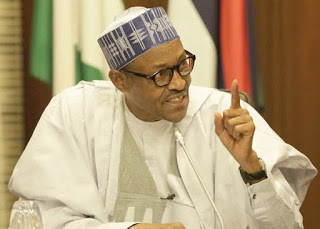 |
| President Muhammadu Buhari |
Nigeria’s President, Muhammadu Buhari on Thursday told an expanded Federal Executive Council meeting in Abuja that the decision to boycott the African Union Continental Free Trade Area (AfCTA) was in the best interest of the local entrepreneurship.
Buhari said the AfCTA agreement has the capacity to encourage the dumping of finished goods in Nigeria.
Buhari also said the country has yet to understand both the economic and security implications of the agreement.
Already, the country has constituted a committee comprising the Ministers of Finance, Budget, Labour, Foreign Affairs, Science and Technology, the Central Bank of Nigeria, Nigerian Customs Service and the Nigerian Immigration Service to further review the content of the agreement.
The president has specifically charged the committee to look at the security implications of the agreement.
The report of the committee is expected to be submitted to the council in two weeks.
Last week, the FEC had last at a meeting chaired by Vice President Yemi Osinbajo resolved that Buhari should sign the AfCFTA agreement framework.
The president, however, canceled his scheduled trip on Sunday after some of his advance team members had arrived Kigali.
It is with pleasure to revert to `News Times’ editorial after 44 countries had signed the agreement tagged “Africa: Now That the Dust has settled On the CFTA, It Is Time to Implement’’.
It said finally, the deal is done. After years of cajoling, convincing and putting matters into perspective on the benefits to be gained by having a single market, Africa’s voice came out loud and clear; working together is more beneficial than going it alone.
44 countries out of 55 signed the treaty thereby proving pundits wrong. Many had predicted that the African Continental Free Trade Area (CFTA) would not take off and was too ambitious.
The African market is too large to leave it to players from outside the continent, but it will have to change the script.
It should not depend only on the volatile extractive industries such as oil and minerals which accounted for 75 per cent of Africa’s exports outside the continent between 2012 and 2014.
Compared with the 40 per cent intra-Africa trade in minerals during the same period, there is more need to tap and share the vast opportunities available.
The other reason for diversifying African exports is that the extractive sector depends on fluctuations in global markets and is less labour intensive unlike, say, manufacturing and agribusiness.
The CFTA also means that the reduction or removal of tariffs will benefit small-scale traders who will now be able to carry out their trade formally. But countries will have to first open their borders.
That only 27 countries signed the free movement protocol is not bad at all. It is the beginning of better things to come.
So, whatever hurdles individual countries had to overcome to come up with the single market documents, Africa should pat itself on the back. But before it embarks on full-scale celebrations, it will have to speed up two things; ratifying and implementation, areas that many countries have performed poorly in the past.




